BBC tries to reach the Syrian southern city They killed hundreds of people. The fragile ceasefire, but the area is still very tense.
On Monday, we got six miles from Suwaida, as soon as it was considered safe.
The Syrian army commander, as we approached, warned us: “There are Druze snipers working on the road forward. This is the greatest danger.”
On the way, we passed through the deserted villages of Druze, now under the control of the full Syrian government.
Last week, this highway was clearly a battlefield. Stores and companies were burned. The sidewalks are scattered with shell covers.
Each half a mile or so we encountered small groups of Syrian army soldiers. Young people, all in black, wear hot tea, and their weapons on their part.
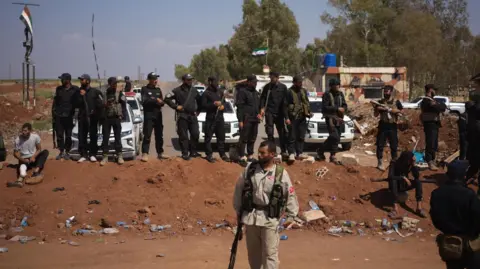
Four days have passed since the Syrian government deployed its forces to impose a ceasefire.
The goal was to try to put an end to a week of sectarian violence between the minority religious society and the Bedouin tribesmen who left more than 1,000 people.
Currently, the ceasefire appears to have been held, but fragile.
While we were heading south, we encountered hundreds of armed Bedouins on the side of the road.
In their distinctive red and white veils, they were in a challenging mood, where they fired violently in the air, as the Syrian government soldiers looked impatiently.
They all said they were ready to take the weapon again if the ceasefire collapsed.
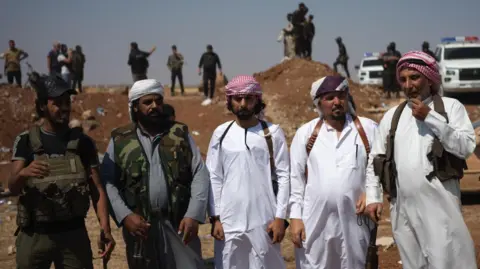
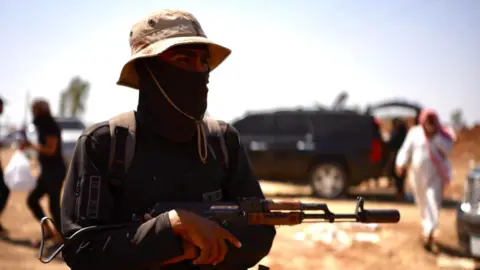
Meanwhile, the Syrian Red Crescent managed to obtain some of the injured Sweden.
In the main hospital in the southern Syrian city of Dera, we saw some of the wounded were brought.
Ahmed, 27, was climbing with crutches, still in his tiredness in the Syrian army, but with his left foot a bandage severely.
He said: “A missile bomb exploded, and shrapnel hit.”
“I want to explain something when we entered Sweden, the houses in front of us were burned, the bodies of the children were burned, and there were children with beheading.”
“The situation was beyond imagination.”
BBC was unable to check his allegations.
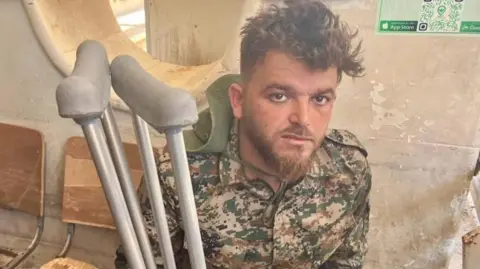
Outside the hospital, I spoke to Riham Bermawi, the Syrian Red Crescent coordinator.
She described the situation as “catastrophic”, which she said was a shortage of medicines and first aid tools.
“Many of the necessary surgeries,” she added.
She was just able to bring some of the wounded from the province of Suwaida, but she said that it is likely to be very dangerous on the way to try another medical evacuation that day because the snipers were shooting the ambulances.
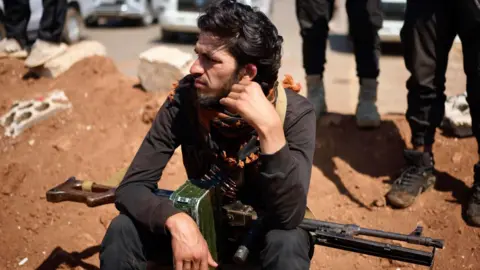
So, what does the future hold for Syria?
Last week witnessed the most dangerous sectarian violence since the Syrian uprising The leader of the Islamic rebel Ahmed Al -Sharra brought to power late last year.
It came after decades of dictatorship under the Assad regime.
“We all need to work more for Syria and to be united,” Red Salih, Minister of Disaster Management and Response of Emergency Cases, told me in a shelter for the displaced people in Sweden Province.
“We have many challenges, but we also have great hope,” he said.
“We have sages in our societies, so I think we can overcome this difficult stage, and we can achieve peace and justice.”
But on the road to the city of Suwaida, we haven’t seen much.
https://ichef.bbci.co.uk/news/1024/branded_news/9f72/live/6882dd90-66c6-11f0-8dbd-f3d32ebd3327.jpg
2025-07-22 06:14:00














